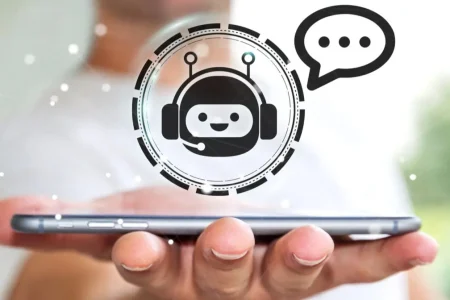Google has prepared its own “smart” chatbot called Bard, in an effort to compete with the new popular artificial intelligence tool ChatGPT. It will be released in a couple of weeks, after having previously been tested by a special team.
ChatGPT has been described as a “killer” of Google and the latter wants to show that it has its own answer and that it can regain the temporarily lost ground in a field where until now it has dominated internationally, in search engines. In this field, however, so-called creative artificial intelligence is now creating new data, making it easier to offer the user more complete and complex answers to the questions than a traditional search engine can do. That’s why ChatGPT is the biggest challenge Google has faced to date from competitors.
Bard is based on its own existing 2021 interactive artificial intelligence model Lamda (Language Model for Dialogue Applications), which an expert who had tested it had described as giving such humane answers that one might come to believe that it is human. At the same time, Google announced that it will integrate new artificial intelligence tools into its existing search engine. The aim is for its machine to be able to answer questions such as “is it easier to learn the piano or guitar?”. Until now, Google’s engine simply lists links to relevant internet sites, but obviously users would prefer a ready-made answer from the engine itself.
AI-powered chatbots are precisely designed to provide answers to complex and evaluative user questions by finding information online and presenting ready-made information in text form. ChatGPT, released on 30/11/2022, can create in seconds from exhibitions for schoolchildren and assignments for students to journalistic and scientific articles, speeches on politicians, poems and songs.
Whether all this is based only on reliable sources and whether disinformation does not enter into the chatbot’s responses and “creations” is a matter for investigation. Google, as a search leader, wants to at least ensure that Bard doesn’t give misleading or irresponsible answers. Nor did it specify how Bard would be prevented from using false, offensive or harmful online content.
Google CEO Sundar Pichai announced that initially Bard will use a “light” version of Lamda, “which requires significantly less processing power”, so that it can serve more questioning users at the same time. ChatGPT, because it has been inundated with questions from every corner of the Earth, often finds it difficult to answer them all at once.
The announcement by Google, which recently announced that it will lay off 12,000 of its employees, comes after information that Microsoft intends to leverage the Open AI company’s ChatGPT in its products (Teams, Office, etc.), as well as in its own search engine Bing, which to date is much less popular than that of Google. Microsoft, not coincidentally, has recently made a multibillion-dollar investment in San Francisco-based Open AI, apparently seeing a window of opportunity to get the upper hand from Google on search engines.
So far, ChatGPT is free for everyone, while at the same time it is being piloted in the US to use it with a subscription of 20 dollars per month. Its appearance, and above all its immediate popularity worldwide, surprised everyone, while at the same time raising concerns of a moral nature (especially in schools and universities), as well as fears of replacing workers and rising unemployment in the future.

